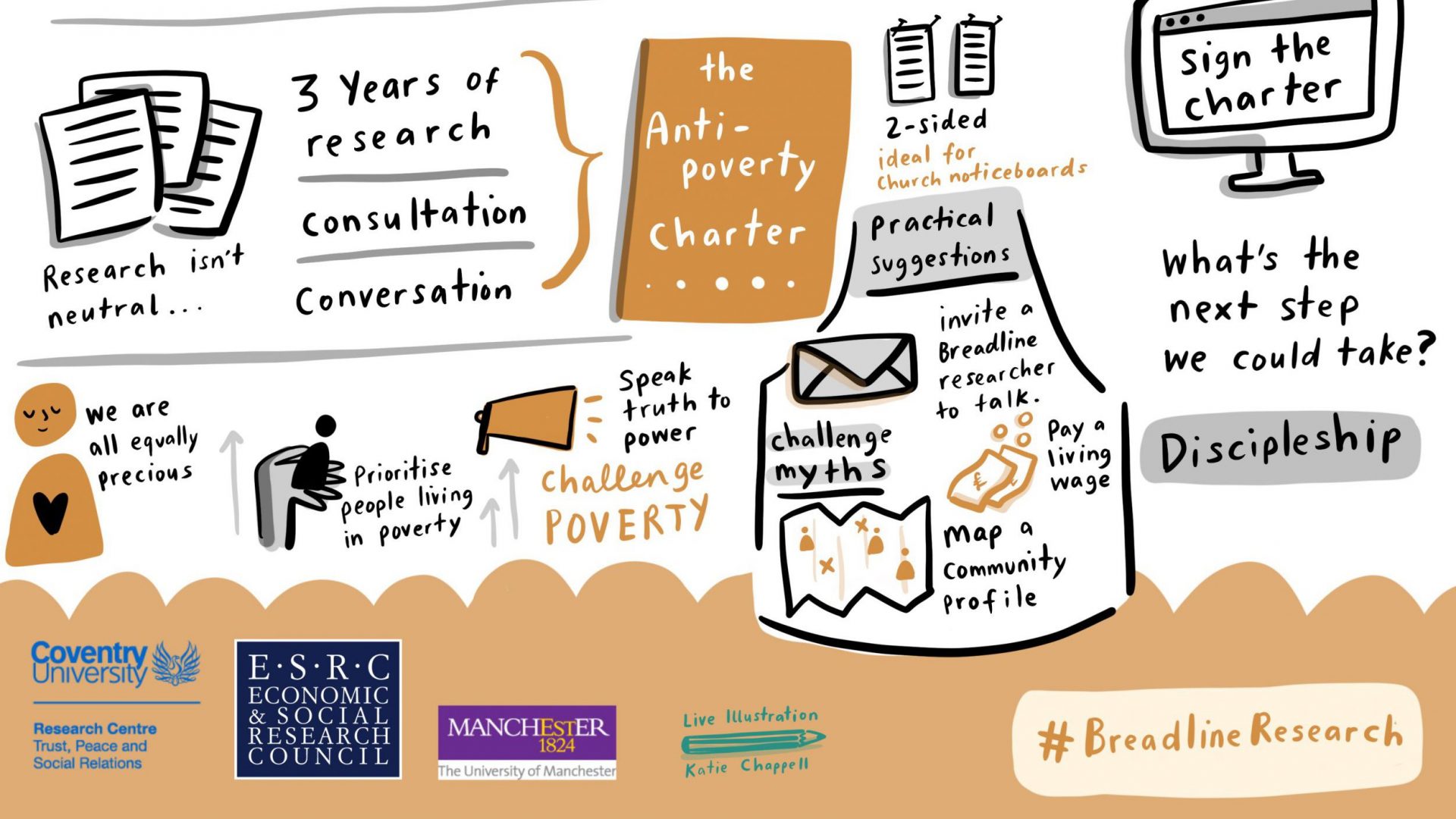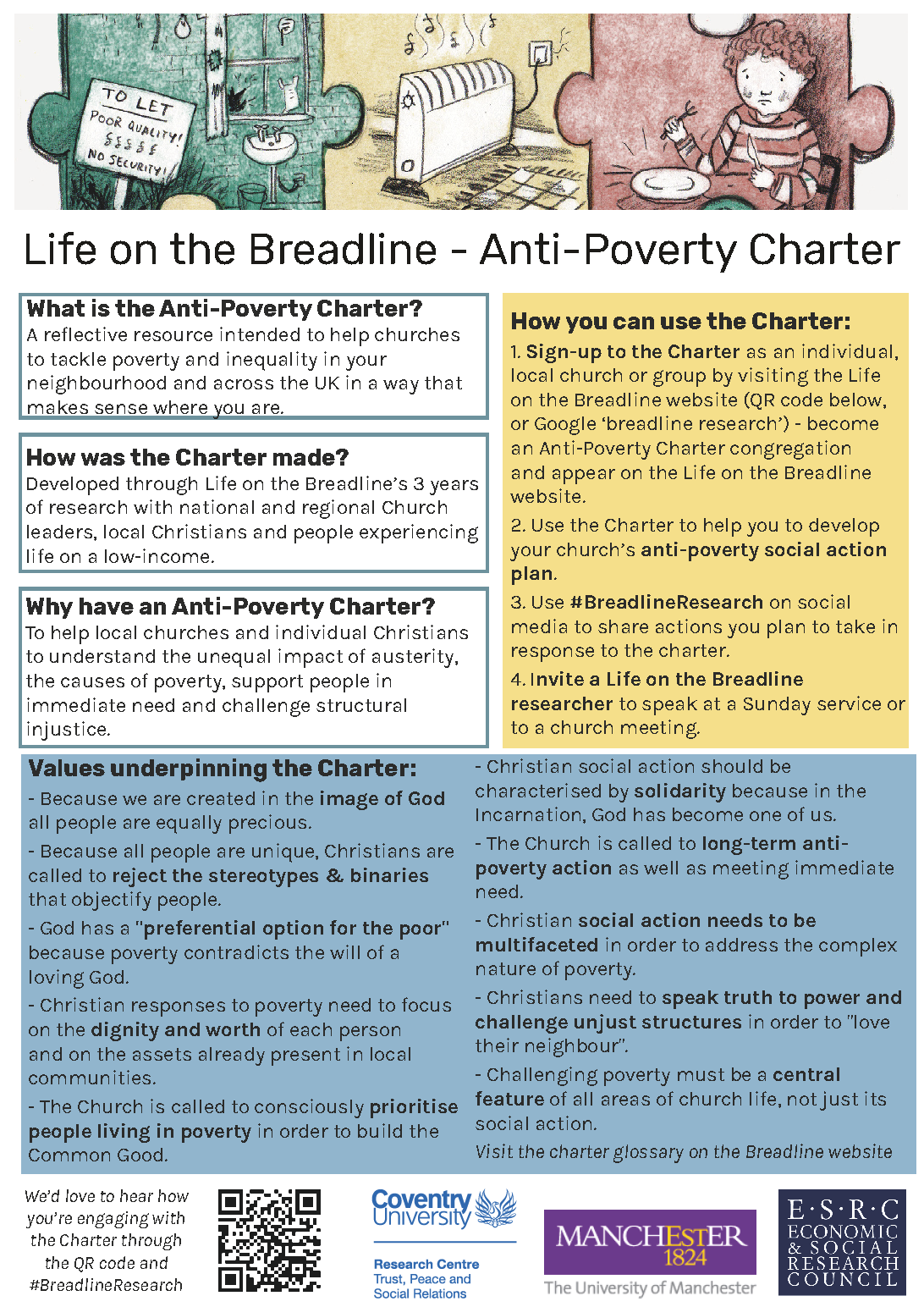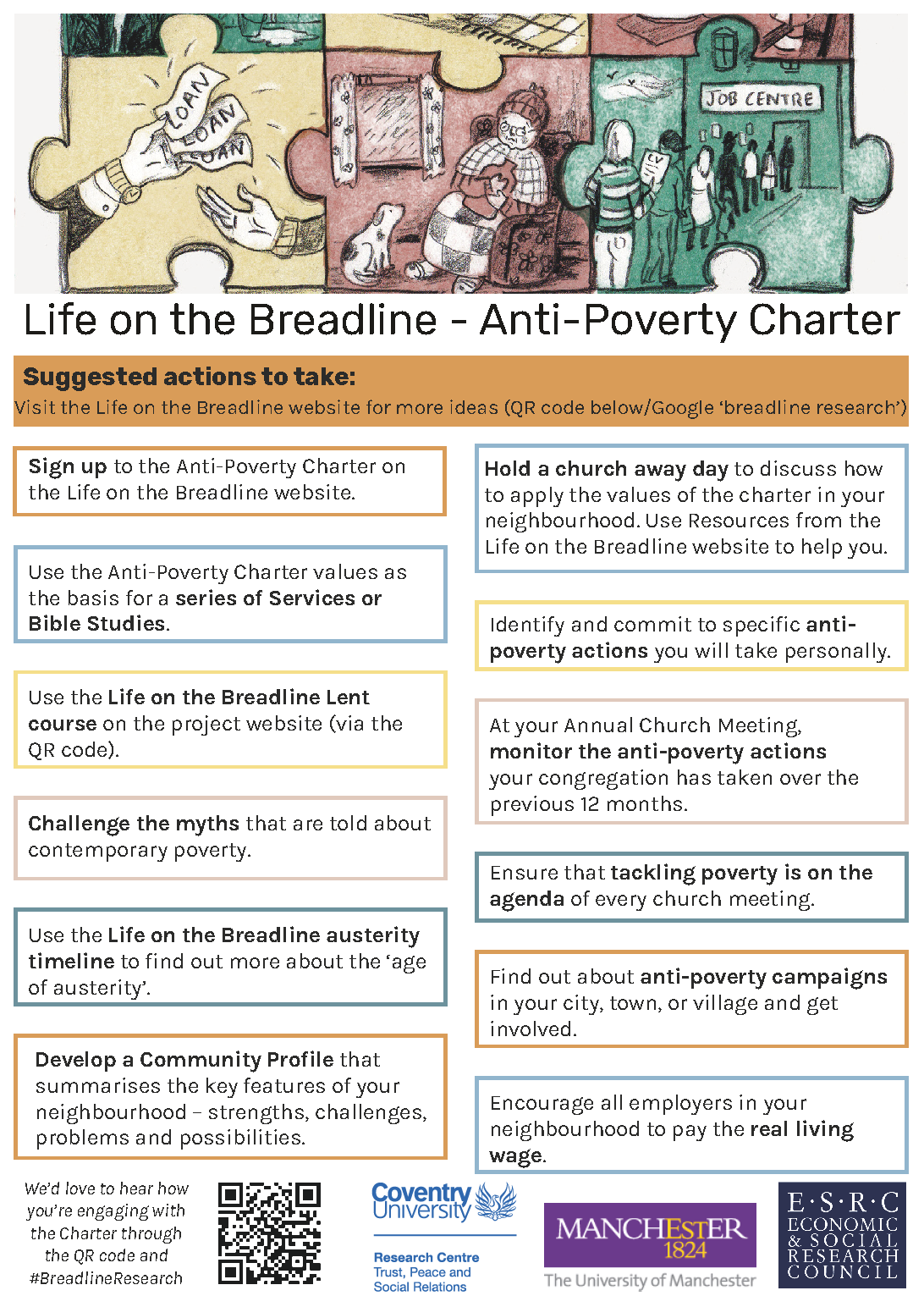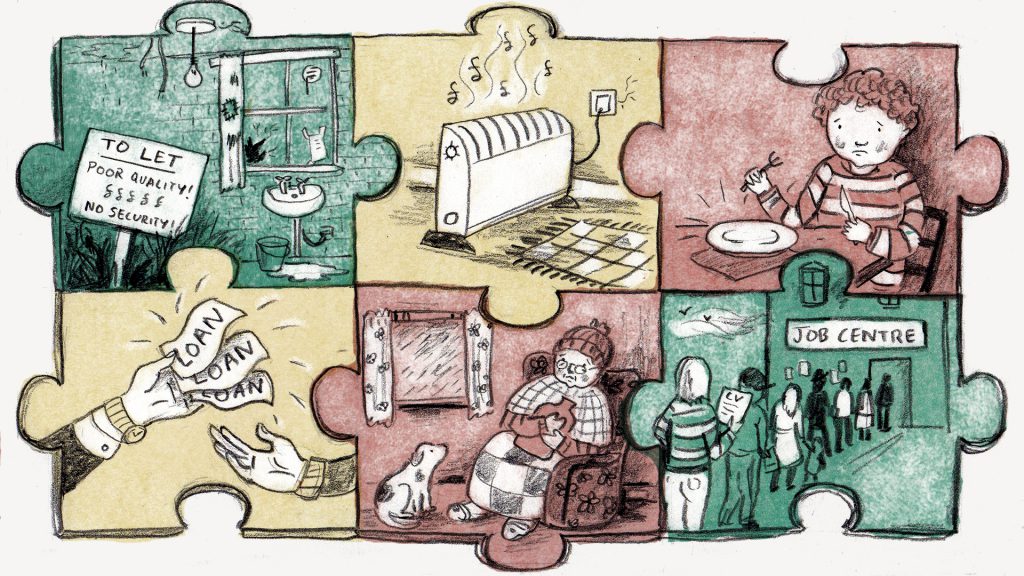
Anti-Poverty Charter
What is the Anti-Poverty Charter?
A reflective action-oriented resource intended to help churches to tackle poverty and inequality in your neighbourhood and across the UK in a way that makes sense where you are.
How was the Charter made?
Developed through Life on the Breadline’s 3 years of research with national and regional Church leaders, local Christians and people experiencing life on a low-income.
Why have an Anti-Poverty Charter?
To help local churches and individual Christians to understand the unequal impact of austerity, the causes of poverty, support people in immediate need and challenge structural injustice.
Life on the Breadline Animation – Anti Poverty Charter
Watch, share, act.
Find the Anti-Poverty Charter below, and click here for a copy to download, print and share


What next?
Sign up to the Anti-Poverty Charter
The Charter is designed to be thought through and adapted to your local context. Spend time doing this with others in your local church and/or community, and sign up to the Charter.
To help you think through further actions that you would like to take, there are other resources to explore on the Life on the Breadline website including our Lent Course, Toolkit for Churches, austerity timeline, and resources from our end of project conference.
Invite a Life on the Breadline researcher to speak at a church service or meeting
Click here for contact details of the Life on the Breadline research team.
Charter Sign-ups
Later this year we will be adding a list of Churches, groups and individuals who have signed up to the Charter – to sign up fill in the box on the left of this page.

Charter glossary:
Image of God: The Biblical story of Creation in Genesis 1 suggests that God created humanity in ‘the image of God’. On the basis of this, Christian teaching has asserted the equal worth of all people, since every person is made in God’s image.
Preferential option for the poor: The Bible asserts the belief that God stands close to the powerless and judges the powerful who oppress people who are vulnerable. The preferential option for the poor is an idea that is central to liberation theology and to the public statements of contemporary Churches about structural injustice. The concept suggests that in an unjust society the God of creation who made and loves all people equally necessarily has a preferential option for the poor, not because all poor people are saints and all rich people are sinners but because poverty contradicts the will of God.
Common Good: Reference to the ‘Common Good’ is common in the description of Christian social action by Church leaders. The concept arises from Catholic Social Teaching and is used as an ethical vision of an inclusive and egalitarian society within which all people are able to fulfil their potential and a means of judging the impact of social policy on social inclusion, social cohesion and social justice.
Incarnation: refers to when God the Father took on human form as Jesus Christ and physically lived amongst us.
Multifaceted: when something has many different aspects.
Speak truth to power: refers to people with experience of an issue (such as living on a low income) sharing their stories and experiences (their ‘truth’) with people in power such as policymakers in government. This term also points to the ministry of the Prophets in the Hebrew Bible who spoke out publicly against the unjust policies and practices of the powerful. To speak truth to power can be seen as part of the prophetic ministry of the Church.
Unjust structures: structural inequalities are inequalities which people experience that come from the structure of society – for example pay inequality based on gender. Within liberation theology such structural injustice is often described as ‘systemic sin’. A commitment to transforming structural injustice is considered to be central to Christian mission and is one of the ‘Marks of Mission’ to which many denominations have committed themselves.